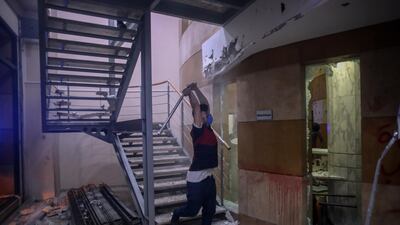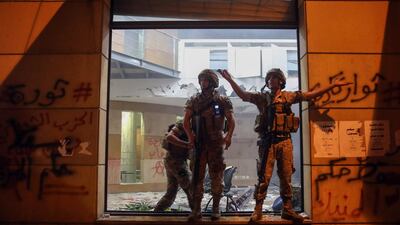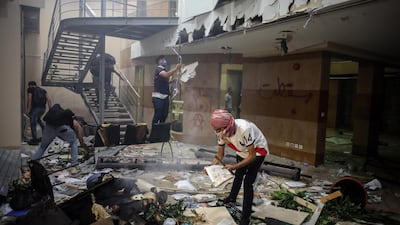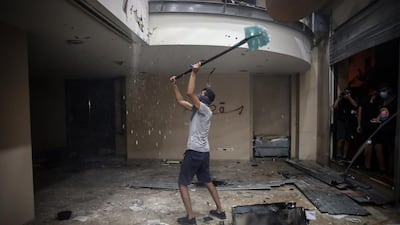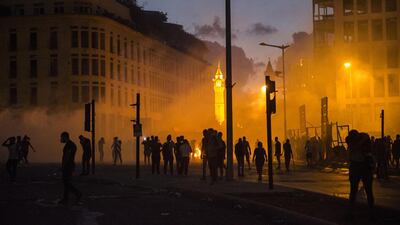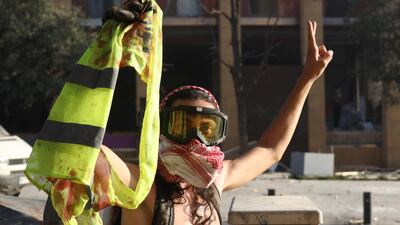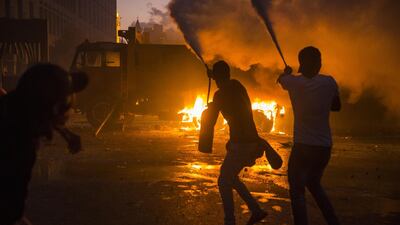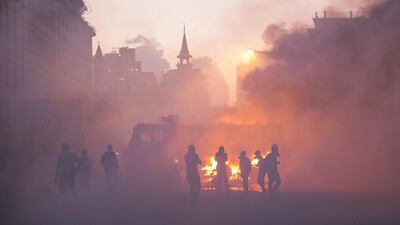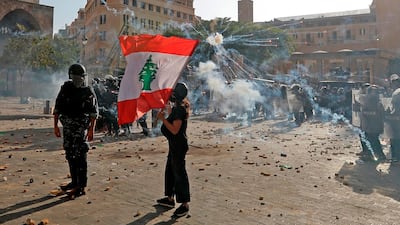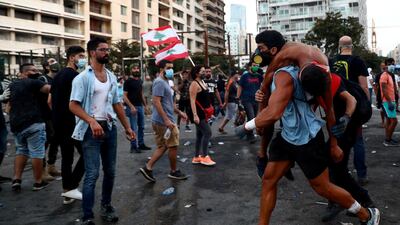The Lebanese Information Minister, Manal Abdel Samad, announced her resignation on Sunday because of government failure to carry out reforms and the catastrophic explosion that rocked Beirut on Tuesday.
Centrist business tycoon Neemat Frem, one of the most high-profile members of Parliament, resigned shortly afterwards, dealing another blow to the Hezbollah-aligned government.
Ms Abdel Samad said on live television that she had resigned “in response to the popular will for change”, and that she “bows in front of the spirit of those killed in the explosion”.
“I apologise to the Lebanese because we were unable to meet their aspirations," she told Lebanon’s National News Agency.
"Change remained elusive and since reality did not match the ambitions, and after the horror of the Beirut disaster, I submit my resignation from the government."
Ms Abdel Samad is the highest-ranking Lebanese official to resign since the explosion at the Beirut port, which killed at least 158 people and wounded thousands more.
Mr Frem, the descendant of a Lebanese industrialist family and Member of Parliament for Byblos and Keserwan, became the sixth legislator to resign since the explosion.
He said Parliament should dissolve itself to allow for early elections.
Independent MP Paula Yacoubian resigned on Saturday, as did three MPs from the Kataeb party.
They announced their decision at the funeral of a senior party colleague who was killed in the blast.
Lebanon’s ambassador to Jordan, Tracey Chamoun, resigned on Thursday.
Ms Chamoun, a member of a prominent Christian political family from the Chouf Mountains, called for “national salvation government to protect the dignity of the Lebanese and their right to life”.
Lebanese Forces party chief Samir Geagea, who is one of the fiercest critics of Hezbollah, said "we are now working for the republic’s relief by ridding it of this Parliament”.
“We are also making the necessary contacts and exerting relentless efforts to collect enough resignations to reach early parliamentary elections as soon as possible,” Mr Geagea wrote on Twitter.
On Saturday, Prime Minister Hassan Diab said he would today propose holding early parliamentary elections to the government in an attempt to address Lebanon’s political crisis.
In a short address that many Lebanese TV stations chose not to broadcast on Thursday evening, Mr Diab said he would introduce a draft bill proposing early elections.
“I am with the Lebanese people in wanting change,” he said.
“We can’t exit the country’s structural crisis without holding early parliamentary elections.”


